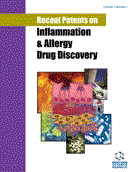Abstract
There are contradictory reports about the efficacy of minocycline for treating schizophrenia. This is a randomized, placebo-controlled clinical trial investigating the effectiveness of minocycline for treating schizophrenia. Forty three patients with schizophrenia diagnosed according to DSM-IV were randomly allocated into minocycline (200mg/d) + risperidone group (n = 21) or placebo + risperidone group (n = 22). Scale for Assessment of Negative Symptoms (SANS), Positive and Negative Syndrome Scale for schizophrenia (PANSS), Beck’s Depression inventory, and Abnormal Involuntary Movement Scale (AIMS) were used. Assessments occurred at baseline, week 4 and week 8. Thirty five patients completed the trial. The changes of SANS total score from baseline to week 4 were not statistically different between the two groups. However, at week 8, there was a statistically significant difference between the two groups. SANS score decreased in the minocycline group more than that of the placebo group (12.2(7.9) versus 6.8(8.6), respectively). The decline of PANSS Negative score from baseline to week 8 in the minocycline group was more than placebo group (4.3(4.2) versus 3.2(3.3). However, the difference was not statistically significant. No one dropped out due to adverse effects. This trial supports the effectiveness of minocycline as an adjuvant treatment with risperidone for treating negative symptoms of patients with schizophrenia. Some patents on the use of tetracycline for the treatment of schizophrenia are also outlined.
Keywords: Catatonic symptoms, inflammation, minocycline, schizophrenia, tetracycline, therapeutic.
 56
56














